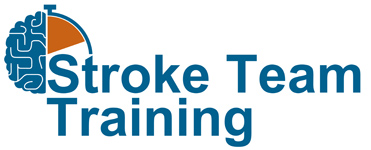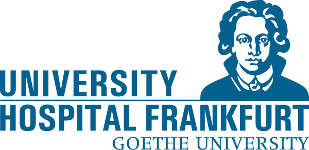|
Multicentric prospective interventional 2-phase evaluation of the efficacy of simulation-based STROKE TEAM training on process times, thrombolysis rates and staff satisfaction. Participants: Seven university hospitals in Germany that treat > 500 stroke patients annually |
 |
Study results:Simulation-based training improves process times in acute stroke care (STREAM)Bohmann FO, Gruber K, Kurka N, Willems LM, Herrmann E, du Mesnil de Rochemont R, Scholz P, Rai H, Zickler P, Ertl M, Berlis A, Poli S, Mengel A, Ringleb P, Nagel S, Pfaff J, Wollenweber FA, Kellert L, Herzberg M, Köhler L, Haeusler KG, Alegiani A, Schubert C, Brekenfeld C, Doppler CEJ, Onur ÖA, Kabbasch C, Manser T, Steinmetz H, Pfeilschifter W; STREAM Trial investigators. Simulation-based training improves process times in acute stroke care (STREAM). Eur J Neurol. 2021;00:1–11. >>> DownloadBackground: The objective of the STREAM Trial was to evaluate the effect of simulation training on process times in acute stroke care. Study design paper:Simulation-Based Training of the Rapid Evaluation and Management of Acute Stroke (STREAM)—A Prospective Single-Arm Multicenter TrialBohmann FO, Kurka N, du Mesnil de Rochemont R, Gruber K, Guenther J, Rostek P, Rai H, Zickler P, Ertl M, Berlis A, Poli S, Mengel A, Ringleb P, Nagel S, Pfaff J, Wollenweber FA, Kellert L, Herzberg M, Koehler L, Haeusler KG, Alegiani A, Schubert C, Brekenfeld C, Doppler CEJ, Onur OA, Kabbasch C, Manser T, Pfeilschifter W and STREAM Trial Investigators (2019) Front. Neurol. 10:969. (PubMed) See also https://clinicaltrials.gov/ct2/show/NCT03228251
Projects targeting patient safetymore see patient safetyMeasuring Patient Safety Climate in Acute Stroke Therapy Bohmann FO, Guenther J, Gruber K, Manser T, Steinmetz H, Pfeilschifter W. Measuring Patient Safety Climate in Acute Stroke Therapy. Front Neurol. 2021 Oct 1;12:686649. >>> Download Simulation-based training improves patient safety climate in acute stroke care (STREAM) Bohmann FO, Guenther J, Gruber K, Manser T, Steinmetz H, Pfeilschifter W; STREAM Trial investigators. Simulation-based training improves patient safety climate in acute stroke care (STREAM). Neurol Res Pract. 2021 Jul 12;3(1):37. >>> Download |
|
| Contact | |
|
Prof. Dr. med. Waltraud Pfeilschifter E-Mail: w.pfeilschifter@med.uni-frankfurt.de Dr. med. Ferdinand O. Bohmann E-Mail: bohmann@med.uni-frankfurt.de | |

